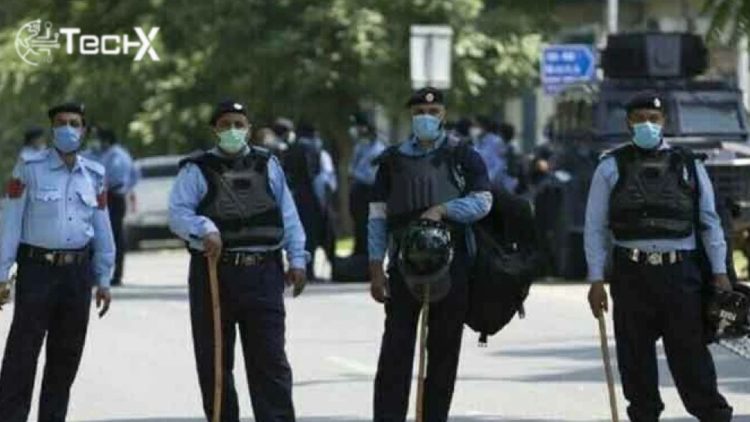The arrest of journalist Fayyaz Zafar under the 3MPO ordinance highlights its controversial use. This law allows for preventive detention to maintain public order. However, critics argue it is often employed to silence dissent and target journalists, raising serious concerns about freedom of expression and state overreach in Pakistan, using colonial-era legislation to suppress critical voices without due process.
The Midnight Arrest
After a late night at work, journalist Fayyaz Zafar descended his office stairs in Swat. He was met by police vehicles and swiftly apprehended without explanation. Upon questioning his arrest, he faced physical violence. This sudden detention under the Maintenance of Public Order (MPO) ordinance was executed on the directives of the Swat Deputy Commissioner, marking the start of a distressing ordeal.
The Official Warrant
At the District Police Officer’s residence, Fayyaz was finally presented with a warrant. He was officially informed of his arrest under Section 3 of the MPO, commonly called 3MPO. Despite being unwell and reliant on a wheelchair, he surrendered willingly. He later alleged that his personal vehicle was left behind and damaged during this process, adding to the grievances of his detention.
Contested Official Reasoning
The Deputy Commissioner’s statement justified the arrest. It accused Fayyaz of disseminating false information on social media, inciting public sentiment against the government, and defaming individuals. This official narrative provided the legal basis for invoking the 3MPO, framing the action as necessary for maintaining public order and preventing the spread of misinformation that could disrupt social harmony.
The Journalist’s Defense
Fayyaz Zafar vehemently denied the official allegations. He asserted he had not spread falsehoods or incited anti-government sentiment. Instead, he linked his arrest to a specific investigative report for the daily Mashriq. The report alleged corruption involving police imports sold in the market, implicating the Deputy Commissioner’s staff. He believed this truthful reporting was the real reason for his detention.
Public Outcry and Release
News of the arrest spread rapidly on social media, prompting immediate condemnation. Politicians, human rights advocates, and fellow journalists voiced strong support for Fayyaz and decried the action. Facing significant public pressure and backlash, the Deputy Commissioner rescinded the 3MPO notification the very next day. This swift reversal led to Fayyaz’s release from Swat Jail.
Personal and Familial Anguish
Beyond his own suffering, Fayyaz expressed deep concern for his family. His mother, already battling a heart condition, risked further health deterioration upon hearing the news. His two young daughters were utterly distraught; they cried incessantly from the moment of his arrest until his return. Their anxiety was so severe that they could not attend school during his brief imprisonment.
Aftermath and Ongoing Harassment
Even after his release, Fayyaz alleged continued harassment. Reports surfaced of a potential new First Information Report (FIR) being filed against him. For unknown reasons, this FIR was not pursued. The experience underscores the persistent pressure and intimidation journalists can face even after being formally released from custody, creating a chilling effect on free speech.
Support from the Press Club
Rafiullah Khan, President of the Swat Press Club, praised Fayyaz’s dedication to journalism despite health challenges. He condemned the arrest and mistreatment, emphasizing Fayyaz’s reputation for impartial and unbiased reporting. Khan detailed his efforts to secure release, including contacting the Inspector General of Police and organizing a Jirga to negotiate with local authorities.
A Hostile Environment for Journalists
Khan highlighted the immense challenges journalists face in Pakistan, especially in Khyber Pakhtunkhwa. They routinely encounter harassment, threats, and abductions. Media organizations often fail to provide adequate support, leaving journalists vulnerable. Many avoid risky reporting, but Fayyaz continued his duties. Khan urged journalistic bodies to take concrete measures to prevent such incidents.
Understanding the 3MPO Law
The Maintenance of Public Order Act (3MPO) grants police broad powers. It targets individuals whose actions are perceived to disrupt public order. This colonial-era law, retained with minor amendments, allows for preventive detention without the immediate need for a formal trial, making it a powerful tool in the hands of the state.
Powers of Detention
Under Clause 3, the government can order arrest or detention if it believes an individual’s actions may disturb public peace. It can further extend detention if the person is deemed a continued threat. However, the law stipulates that no single period of detention can exceed six consecutive months, setting a legal maximum for how long someone can be held preventively.
Arrest and Warrant Procedures
The law permits a sub-inspector or higher-ranking police officer to arrest an individual with a warrant. Notably, the statute does not necessitate the immediate physical display of this warrant at the moment of arrest. This provision streamlines the process for authorities, but can also create scenarios where detainees are unaware of the formal charges against them initially.
Judicial Oversight Provisions
For detentions exceeding three months, the High Court must establish a review board. This board evaluates the reasons and evidence justifying the need for an extended detention period. This provision is intended as a judicial check on the executive’s power, ensuring that prolonged deprivation of liberty is not arbitrary and is subject to legal scrutiny.
The Rumour Law: Section 16
Section 16, often called ’16 MPO,’ tackles rumors. It allows arrest if spoken, written words, or audio are deemed by the government as spreading false information. This must allegedly endanger the public or a specific group. Conviction can lead to imprisonment for up to three years, a fine, or both, casting a wide net over freedom of expression.
















